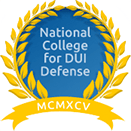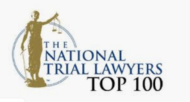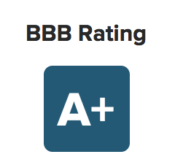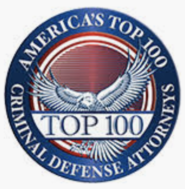Table of Contents
-
Types of Child Pornography Cases Handled By Our NJ Criminal Firm
-
Photographing, Filming or Otherwise Manufacturing Child Pornography
-
Causing or Permit a Child to Engage in Child Pornography
-
Distributing or Selling Child Pornography
-
Participating in a Child Pornography File Sharing Network
-
Penalties for Distributing or Participating in a File Sharing Network
A New Jersey criminal charge for distribution of child pornography has the potential to severely impact your life and freedom. The same is true if you have been charged with using a file sharing network or participating in the production of videos, pictures or images containing child pornography. There is absolutely no doubt whatsoever that you need to retain an attorney who is an accomplished litigator if you are facing any variety of this offense.
The attorneys at the Law Offices of Jonathan F. Marshall have the pedigree that is invaluable in defending a New Jersey child pornography distribution charge. We have over 200 years of combined experience representing clients arrested for all varieties of N.J.S.A. 2C:24-4 in Superior Courts throughout New Jersey. Our effective representation and track record of success has resulted in our law office earning a reputation as fierce advocates whose abilities are highly respected.
Individuals arrested for file sharing, distributing or assisting in the production of child pornography have utilized our law firm to defend these charges given our exceptional credentials, including:
- Our employing a team of ten (10) criminal defense lawyers whose experience includes significant time as prosecutors throughout New Jersey. These attorneys have gained unique insight serving in high level positions in county prosecutor’s offices as Director of Major Crimes, Drugs Task Force, Juvenile Division and Special Operations. Our staff has also served as senior counsel to the govern, in several county public defender’s offices and in the Office of the Attorney General.
- Most of the attorneys have at least fifteen (15) years in practice and have not only handled criminal cases like child pornography distribution and file sharing cases but also tried them. Our experience in this area is so formidable that our members are certified criminal trial attorneys—a distinction possessed by less than 2% of those licensed in New Jersey.
- The extensive resources that come with being represented by one of the state’s largest defense teams, such as an array of highly skilled attorneys, a large support staff and accomplished outside investigators and experts.
- An extensive track record and history of litigating charges and forging invaluable respect and relationships with judges and prosecutors throughout New Jersey so that we can be most effective for our clients in securing dismissals, favorable pleas and reduced penalties. Those who hire our criminal defense firm engage a team that knows how to get you the result you need.
- Caring and compassionate professionals that appreciate the stakes presented in a distribution of child pornography case and who will fight to make sure the long term impact on your life is minimized.
- Several offices throughout NJ to serve our clients and ensure an intimate connection with a court system.
To speak to a lawyer at the Law Offices of Jonathan F. Marshall immediately, call 1-877-534-7338. You can also fill out the online form to make an inquiry or schedule a meeting in one of our conveniently located offices. Our highly skilled New Jersey criminal defense attorneys are ready to assist you.
Types of Child Pornography Cases Handled By Our NJ Criminal Firm
Our firm has considerable experience in the area of sex crimes and, in particular, the defense of child pornography charges. The team of veteran NJ criminal attorneys and former prosecutors can help you defend charges involving:
- Causing or Permitting a Child to Create Child Pornography
- Possession of Child Pornography
- Filming or Photographing Child Pornography
- Endangering the Welfare of a Child
- Selling or Distributing Child Pornography
- Participating in a Child Pornography File Sharing Network
An experienced New Jersey criminal lawyer like those at our firm can help you prepare an effective defense to whatever variety of child pornography you are facing. Do not underestimate the severity of this type of charge because it can easily end up with you spending years in prison and registering as a sex offender. Call our office 1-877-534-7338 for the sound legal guidance you need.
Photographing, Filming or Otherwise Manufacturing Child Pornography
Filming, videoing, creating, reproducing or reconstructing an image of a child performing a sexual act or portraying them in a sexually suggestive manner is either a second degree crime or first degree crime under N.J.S.A. 2C:24-4b(4). This conduct is a second degree crime when it involves the production of less than 1,000 images of child pornography. Manufacturing or producing child pornography in this capacity is a first degree crime when 1,000 or more items depicting a child in this manner are involved.
The Administrative Office of the Courts in New Jersey has adopted Model Jury Charges. These instructions are given to jurors prior to their deliberating as to a defendant’s guilt or innocence to an indictment for photographing or filming child pornography. There are two elements that must be established, beyond reasonable doubt, in accordance with New Jersey Law:
- That defendant photographed or filmed a child in a prohibited sexual act or in the simulation of such an act, or used a device, including a computer, to reproduce or reconstruct the image of a child in a prohibited sexual act or in the simulation of such an act; and
- Their conduct was knowing.
Key NJ Court Decisions on Filming or Creating Child Pornography Contrary To 2C:24-4b(4)
State v. Sisler, 353 N.J.Super. 590 (App.Div.2002). This Appellate Division decision, which was affirmed by the New Jersey Supreme Court, holds that the act of copying or printing an image of child pornography does not result in a second degree crime under 2C:24-4b(4) for “using a device, including a computer, to reproduce or reconstruct the image of a child in a prohibited sexual act”. An individual may be convicted for possession of child pornography for this conduct but not creating/manufacturing child pornography.
State v. May, 362 N.J.Super. 572 (App.Div.2003). The primary issue in this case was whether or not the images created by the defendant were of real children or virtual images that were “morphed” or computer generated”. Someone accused of creating child pornography can only be convicted if the images or depictions are of actual children.
Causing or Permit a Child to Engage in Child Pornography
A charge for causing or allowing a child to perform an act or pose for the purpose of creating child pornography is a first degree crime under N.J.S.A. 2C:24-4b(3). This section of the New Jersey endangering the welfare of a child law provides that:
(3) A person commits a crime of the first degree if he causes or permits a child to engage in a prohibited sexual act or in the simulation of such an act or to be portrayed in a sexually suggestive manner if the person knows, has reason to know or intends that the prohibited act or portrayal may be photographed, filmed, reproduced, or reconstructed in any manner, including on the Internet, or may be part of an exhibition or performance.
There are three (3) elements that must be established in order for the prosecutor to obtain a conviction for causing or allowing a child to participate in child pornography:
- The victim was under the age of eighteen (18);
- The defendant knowingly caused or permitted a child to engage in a prohibited sexual act or in the simulation of such an act; and
- The defendant knew, had reason to know or intended for the act or simulation to be photographed, filmed, reproduced or reconstructed.
Key New Jersey Court Decisions On Causing or Allowing A Child To Participate In Production of Child Pornography
State v. V.R., 387 N.J.Super. 342 (App.Div.2006). The Appellate Division reversed a conviction because, although the defendant admitted to taking photographs of a nude child, he did nothing to cause the child to disrobe or pose nude. The court found that there must be a cause and effect relationship in order for an individual to be found guilty; in other words, the actor must be the reason why the child is nude, performing an act or engaging in a simulation.
State v. J.F.G., (unreported decision). The Appellate Division affirmed a conviction under 2C:24-4b(3), finding that the required showing of causation was established where the defendant instructed the children to take off their clothing so that he could videotape them nude.
Distributing or Selling Child Pornography
It is either a second degree crime or first degree crime under N.J.S.A. 2C:24-4b(5)(a) for someone to sell or distribute child pornography in New Jersey. This section of the NJ Endangering the Welfare of a Child Law provides, in pertinent part, that:
(5)(a) A person commits a crime if, by any means, including but not limited to the Internet, he:
(i) knowingly distributes an item depicting the sexual exploitation or abuse of a child;
(ii) knowingly possesses an item depicting the sexual exploitation or abuse of a child with the intent to distribute that item; or
(iii) knowingly stores or maintains an item depicting the sexual exploitation or abuse of a child using a file-sharing program which is designated as available for searching by or copying to one or more other computers.
There are two (2) elements that must be shown by the prosecutor in order to obtain a conviction under either subsection (i) of 2C:24-4b(5)(a) for distribution of child pornography. First, the state must show that the defendant distributed an item depicting the sexual exploitation or abuse of a child. Second, the conduct of the accused must be knowing.
The elements are slightly different when it comes to proving a violation under subsection (ii) of 2C:24-4b(5)(a) for possession with intent to distribute child pornography. The first requirement is that the defendant be in possession of an image or video depicting the sexual exploitation or abuse of a child. Second, the defendant must have knowingly possessed the item, that is to say, know that it is child pornography and have an intent to exercise control over it. The third and final requirement in order to secure a conviction is that the defendant have the intention to distribute the photo or video in the future.
A violation of either subsection (i) or (ii) of 2C24-4b(5)(a) is a second degree crime where distribution involves less than 1,000 images or depictions. It is a first degree crime when the conduct involves 1,000 or more items.
Participating in a Child Pornography File Sharing Network
The most common variety of child pornography offense aside from possession is probably participation in a file sharing network containing depictions of sexual exploitation or abuse of children. This charge is set forth at N.J.S.A. 2C:24-4(b)(5)(a)(iii) which makes it a crime to:
knowingly stores or maintains an item depicting the sexual exploitation or abuse of a child using a file-sharing program which is designated as available for searching by or copying to one or more other computers.
Participation in a file sharing network results in a second degree crime when the number or images is less than 1,000. If the violation involves 1,000 or more images, a conviction results in a first degree crime.
There are two (2) elements that must be established by the state in order to convict someone for participating in a child pornography file sharing network in violation of 2C:24-4(b)(5)(a)(iii). First, the state must establish that the defendant knowingly stored or maintained an item depicting the sexual exploitation or abuse of a child. Second, the conduct must occur on a file sharing program or network designated for searching by or copying to one or more other computers. You will note that there is no requirement in terms of elements that “an item depicting the sexual exploitation or abuse of a child had actually been searched, copied, transmitted or viewed by another user of the file-sharing program, or by any other person”. The reason is because 2C:24-4(b)(5)(a)(iii) expressly states that it is not a defense that no files were actually shared or that the defendant lacked an intention to distribute an item to another user of the file-sharing network. An individual is strictly liable once he or she participates in a file sharing network unless they block their image(s) from searching or copying.
Key New Jersey Child Pornography Decisions Involving File Sharing
State v. Lyons, 417 N.J. Super. 251 (App.Div.2010). The Appellate Division reversed a dismissal of second degree child pornography charges stemming from participation in a file sharing network. The charge had been dismissed based on the state’s failure to demonstrate an intention by the defendant to transfer or distribute images or even knowledge that the images would be accessible to others. The dismissal was reversed and the second degree crime reinstated because the legislature has expressly stated that this law is of a strictly liability nature; lack of intent to sell, transfer or distribute child pornography is irrelevant.
State v. Miller, 449 N.J. Super. 460 (App.Div.2017). The Appellate Division reiterated in Miller that there is no need for the prosecutor to show that the defendant offered his/her images or depictions to others on a file sharing network. Placing child pornography in a file that is searchable and accessible to others is all that is required.
Penalties for Distributing or Participating in a File Sharing Network
An individual faces serious penalties if they plead or are found guilty of: (1) causing or allowing a child to participate in child pornography; (2) filming, videoing or producing child pornography; (3) distributing child pornography; or (4) participating in a child pornography file sharing network.
Fines & Imprisonment. A second degree crime for any variety of child pornography offense results in 5-10 years in state prison and a fine of up to $150,000. The prison term is 10-20 years and the fine is up to $200,000 for a first degree crime under N.J.S.A. 2C:24-4(b). There are also sentencing enhancements to these penalties when someone is convicted of a second or subsequent conviction for possession or distribution of child pornography. An extended term of imprisonment (i.e. double to period of incarceration) when this is the case.
Megan’s Law. An individual must be sentenced to sex offender registration under Megan’s Law if their child pornography conviction resulted from a violation of:
- N.J.S.A. 2C:24-4(b)(3) – Causing or Permitting a Child To Participate In Child Pornography
- N.J.S.A. 2C:24-4(b)(4) – Photographing, Filming or Creating Child Pornography
- N.J.S.A. 2C:24-4(b)(5)(a)(i) – Distributing Child Pornography
- N.J.S.A. 2C:24-4(b)(5)(a)(i) – Possession With Intent to Distribute Child Pornography
Parole Supervision For Life. An individual is subject to lifetime parole supervision if they are convicted for causing or permitting a child to engage in a child pornography, photographing/filming/creating child pornography, distributing or possession with the intent to distribute child pornography or participating in a file sharing network containing depictions of the sexual exploitation or abuse of children. This special sentence must be imposed upon motion of the prosecutor absent the court finding that it is not needed to protect the community or deter the defendant from future criminal activity.
Frequently Asked Questions
Child Pornography Distribution
How Does The Number Of Images Effect A Child Pornography Distribution Offense In New Jersey?
Distribution of 1,000 or more items depicting the sexual exploitation or abuse of a child is a first degree crime that carries 10-20 years in prison. There is also a mandatory minimum term of imprisonment that must be fixed at, or between, one-third and one-half of the sentence imposed by the court or 10 years, whichever is greater. During this time, the individual is ineligible for parole. Distribution of 25-999 depictions of this nature is a second degree crime that results in a mandatory minimum sentence of fixed at, or between, one-third and one-half of the sentence imposed by the court or 5 years, whichever is greater.
What Is The Sentence For Distributing Child Pornography?
Distribution of child pornography can expose an individual to either a first degree crime or second degree crime, depending on the number of images involved. First-degree distribution of child pornography carries a sentence of ten to 20 years in imprisonment, with a 15-year presumptive sentence. Second degree distribution of child pornograpyhy results in a prison sentence of five to ten years, with a seven-year presumptive sentence.
What Are The Potential Charges If You Send a Text Containing Child Pornography?
A person who texts images of a minor is exposed to several criminal charges. The primary offense that arises is distribution of child pornography, a second degree crime. If the text involves an adult prompting a minor to perform a sex act that is photographed or videotaped, then the charge will be creating child pornography, a first degree crime.
Is It Legal To Sext Imagines Or Videos Containing Minors?
New Jersey has enacted a law specifically addressing the practice of sending a sexually explicit text message, commonly referred to as “sexting.” When the sext contains nudity or sexual images (or videos) of a person under 18, the item is considered child pornography. If someone distributes a text containing these types of images, a charge for distribution of child pornography will typically follow.











